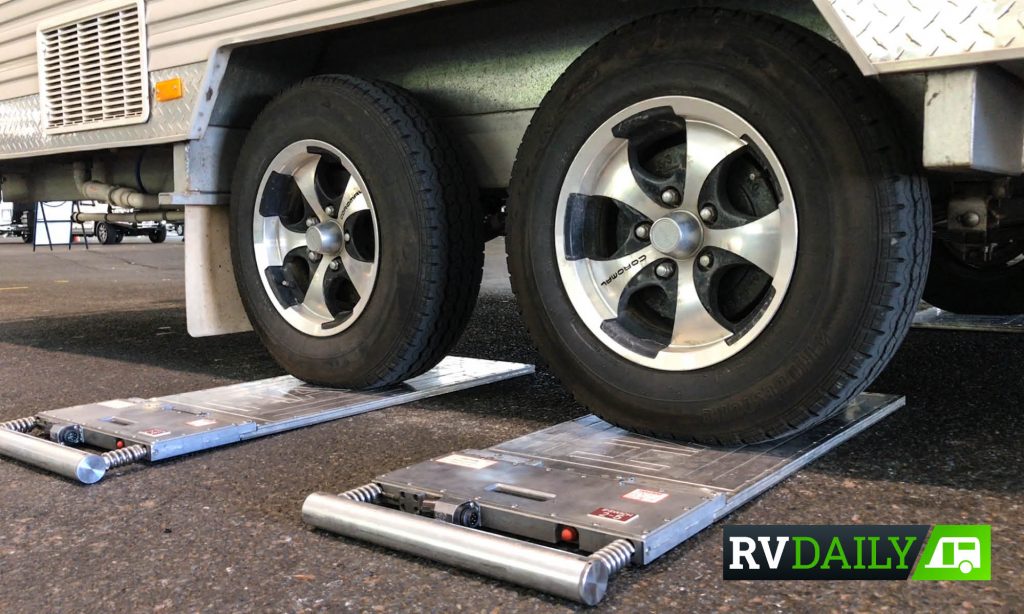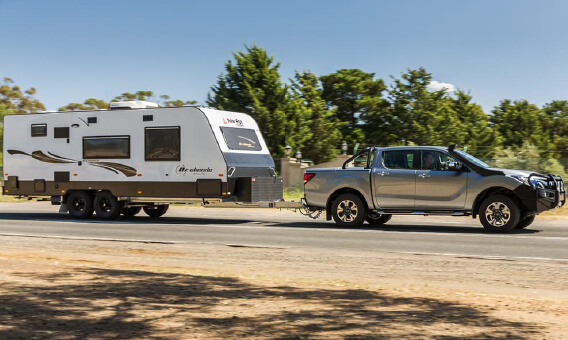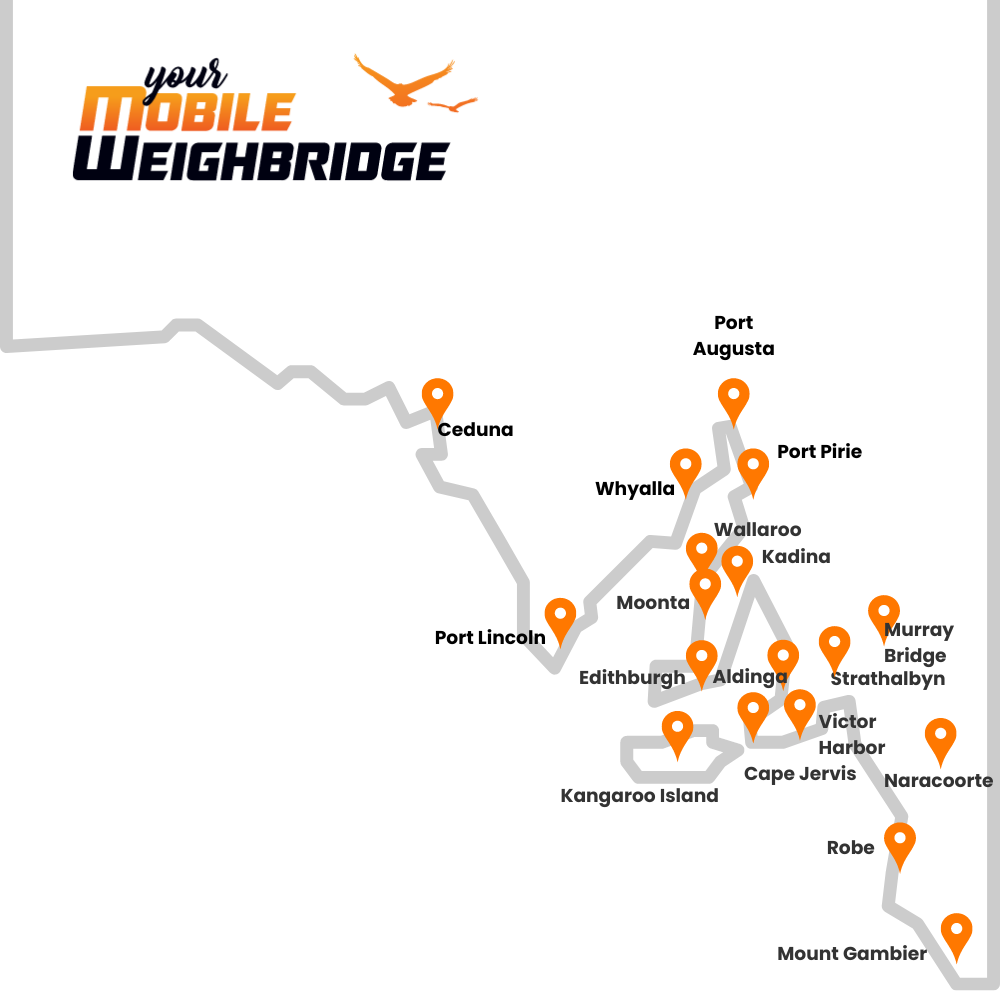Your Mobile Weighbride use Swedish Haenni scales also used by Law Enforcement Authorities
VIC ROADS | TRANSPORT S.A. | MAIN ROADS W.A. | QLD TRANSPORT | TASMANIAN HWYS | DEPT of TRANSPORT N.T. | FIJI TRANSPORT | NEW GUINEA TRANSPORT | NATIONAL HEAVY VEHICLE REGS | LAND TRANSPORT AUTHORITY SAMOA | NEW ZEALAND POLICE
By having your caravan weighed by Your Mobile Weighbridge you will gain peace of mind because our easy-to-understand reports are accurate and comprehensive.
We come to you, explain your results and provide recommendations to ensure compliance to all vehicle and trailer regulations. Our state of the art vehicle weighing equipment can weigh up to 10 ton per wheel which means we not only weigh caravans, but also semi-trailers, boats, commercial trailers and many more!
Based in South Australia, our service area covers everywhere from Port Lincoln to Mount Gambier. Our ideal location and portable equipment makes our weighing service the most convenient and reliable solution.
For peace of mind about your weights, safety and compliance, we are the best, simple solution – call us, we look forward to meeting with you.


Why do you need to weigh your vehicle?
As the driver of your vehicle, you are solely responsible for ensuring it is not overloaded. Recent reports show 70% are. You need to know that your rig complies with all the regulations – to hide in the shadows is not a wise choice.
4wding Australia writes – The information you need is all right at your fingertips. The compliance plates on your car and trailer are not there for decoration or, as one person tried to tell me one day, a guide. They detail the limits of what the manufacturer has determined are safe for that vehicle. Put simply, GVM is the maximum your tow vehicle can weigh. ATM is the maximum your trailer can weigh. GCM is the maximum the combined rig can weigh.
What happens if you exceed your Weights?
Manufacturers give maximum weights for good reason; it’s only designed to carry so much.
If you exceed your weights, your insurance company can walk away from any claims because your vehicle was not roadworthy at the time of the accident. Fines and prosecution through the Courts can follow. Beyond that, a heavy vehicle puts all sorts of excess stress on the components of your vehicle, and will cause issues over time. THINK SAFETY – to hide in the shadows is not wise.
“The operator needs to manage payload and towing to not exceed GVM or GCM” — Ford
“A customer should never exceed the GVM of their vehicle or maximum axle weights stipulated in their owner’s manual/handbook” – Toyota
“Firstly, its a legal requirement to meet the above criteria. If you don’t meet it, you are breaking the law. Beyond that, if your insurance company deems an accident you have was contributed to by being over weight, they can legally walk away or reduce your claim. Not good. In fact, seriously not good. Rear end a nice Ferrari or sports car and you could be in a world of financial pain for the rest of your life.
Lastly, ratings are given from an engineering perspective as that is what they are designed to do, and if you push beyond that limit the chances of something going drastically wrong increase substantially.”
4wding Australia

South Australian
Major Towns and Surrounding Areas
Adelaide Metropolitan
Aldinga
Berri
Cape Jervis
Ceduna
Edithburgh
Goolwa
Kadina
Kangaroo Island
Maitland
Millicent
Moonta
Mount Barker
Mount Gambier
Murray Bridge
Naracoorte
Normanville
Port Augusta
Port Lincoln
Port Pirie
Renmark
Robe
Strathalbyn
Victor Harbor
Waikerie
Wallaroo
Whyalla